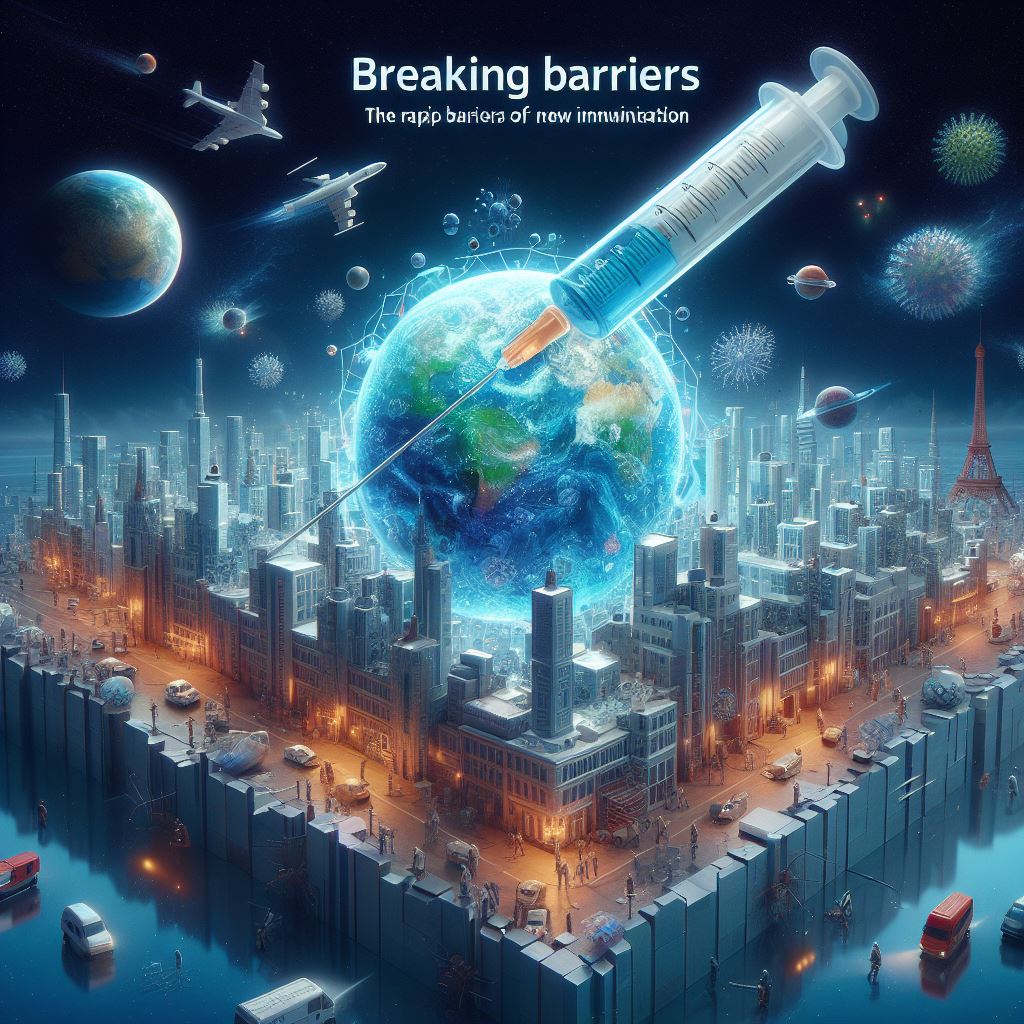In a monumental stride towards combatting one of Africa’s most insidious diseases, healthcare workers in West Africa have embarked on a historic endeavour, administering groundbreaking malaria vaccines. Developed after decades of research and trials, these vaccines signify a beacon of hope in the fight against malaria, a disease that remains a leading cause of mortality among children on the continent.
The rollout of the RTS,S vaccine, manufactured by GlaxoSmithKline (GSK) and PATH, a non-profit health organization, commenced in Cameroon on January 22, targeting infants and children under five. Following suit, Burkina Faso is poised to initiate vaccination campaigns this month. Simultaneously, a second vaccine known as R21, developed by Oxford University and manufactured by Serum Institute of India, awaits deployment after securing approval from the World Health Organization (WHO) in December.
These vaccines represent the culmination of extensive efforts to curb malaria, a disease that exacts a heavy toll on African communities, with nearly all of the over 200 million annual cases worldwide occurring on the continent.
The RTS,S vaccine, also known as Mosquirix, functions by activating antibodies to target the infectious stage of the Plasmodium falciparum parasite, transmitted by the female anopheles mosquito. In clinical trials, RTS,S demonstrated a 75 percent efficacy rate, significantly reducing malaria cases among vaccinated children.
Similarly, the R21 vaccine has shown promise, boasting a 75 percent efficacy rate over 12 months. However, its efficacy wanes within a year, necessitating frequent booster shots, as highlighted by Wendy Prudhomme O’Meara, a professor at Duke University.
Malaria poses a grave threat to public health in Africa, particularly affecting children and pregnant women. Severe cases can lead to organ failure and death, making it the second leading cause of toddler mortality on the continent. Moreover, malaria disproportionately affects impoverished communities, exacerbating existing socioeconomic disparities.
While the introduction of malaria vaccines offers a ray of hope, significant challenges loom large. Limited vaccine supply coupled with logistical hurdles in distributing doses to rural areas present formidable obstacles. Additionally, overcoming vaccine hesitancy fuelled by misinformation and ensuring consistent electricity supply for storage pose significant challenges.
Despite these challenges, experts remain optimistic about the potential of malaria vaccines to curb the disease’s spread. With concerted efforts to address logistical barriers and expand vaccine access, Africa stands poised to make significant strides towards malaria eradication.
As the continent navigates the complexities of vaccine deployment, the quest to eliminate malaria remains a collective endeavour requiring sustained commitment and collaboration from governments, international organizations, and communities alike. The rollout of malaria vaccines marks a pivotal moment in Africa’s fight against a formidable adversary, offering renewed hope for a future free from the scourge of malaria.
Join us at the 6th Vaccine World East Asia Congress at the Songdo Convention Centre, South Korea, from August 13–14, 2024. This vital gathering discusses vaccine R&D, manufacturing, and cutting-edge technologies, fostering collaboration and sharing groundbreaking case studies. From immunology to production, explore the ever-changing landscape of vaccine innovation with global leaders. Register here now: https://imapac.com/events/vaccine-world-east-asia/
Source: https://www.aljazeera.com/news/2024/2/12/could-new-vaccines-end-malaria-in-africa





